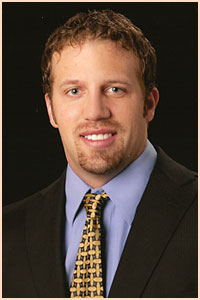
March has arrived, and that can only mean one thing: it’s National Nutrition Month. Every March, Drs.
Dennis Graber,
Aaron Aadland and thousands of dentists and hygienists celebrate this occasion, and this year is no different. This March, Drs. Graber, Aadland and
our team want you to think diabetes, obesity and periodontal disease, and how healthful eating and physical activity may improve periodontal health.
Small changes really can make a big difference, and the American Dietetic Association (ADA) has some advice on ways to start improving your diet this March:
•
Focus on fruits and vegetables: Add a serving each day to one meal and increase it every few weeks. Adding more of these foods into your diet is important whether you buy frozen, fresh or organic.
•
Think fresh, think local: From farmer’s markets to community-supported agriculture, you have many options to find new, fresh foods in Sioux Falls.
•
Make each and every calorie count: When you are choosing between options, focus instead on the one with more of the vitamins and nutrients that you need. Sometimes, foods with fewer calories aren’t always the healthiest options.
•
It’s tempting, but…: If you have a sweet tooth, have fruit and yogurt for dessert. If you crave a snack in the afternoon, enjoy some trail mix or nuts.
•
Expand your horizons: Try a fish you’ve never eaten before or find a new vegetable recipe. By testing yourself, you might find new healthy favorites to add to your regular grocery list.
If you have additional questions about periodontal disease or keeping yourself and your mouth healthy, please
give us a call!
 Wouldn’t you believe it, it’s already springtime! The spring months, however, bring an increase in outdoor activities and a greater chance of kids damaging their precious mouths and pearly whites. If you play sports, it's important that you consult Dr. Dennis Graber or Dr. Aaron Aadland for special precautions, such as wearing a mouth guard. A protective mouth guard is advised for playing spring sports such as baseball, soccer, lacrosse and others.
Wouldn’t you believe it, it’s already springtime! The spring months, however, bring an increase in outdoor activities and a greater chance of kids damaging their precious mouths and pearly whites. If you play sports, it's important that you consult Dr. Dennis Graber or Dr. Aaron Aadland for special precautions, such as wearing a mouth guard. A protective mouth guard is advised for playing spring sports such as baseball, soccer, lacrosse and others. 










